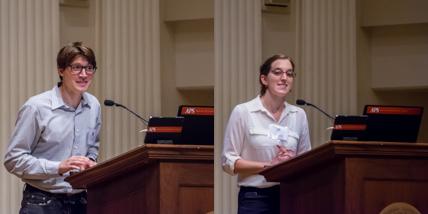UCSF is a global leader in tobacco science, a World Health Organization Collaborating Centre, and home of the Truth Tobacco Industry Documents. Deadline for Submission is January 22, 2025
The Beckman Center for the History of Chemistry at the Science History Institute is now accepting applications for 2025–2026 research and curatorial fellowships. Scholars from any field whose research would benefit from the use of their collections are invited to apply for one of their programs by January 15, 2025.
The David M. Rubenstein Rare Book & Manuscript Library is now accepting applications for the 2025-2026 Research Travel Grant Program. Applications due February 28, 2025.
The Kenneth O. May Postdoctoral Fellowship is available for postdoctoral researchers in the history of mathematics, broadly defined. Applications are due by January 15, 2025.
The additions include the papers of Dr. Antonia Novello and public health advertising images. Newly digitized items include the papers of Wilbur Sawyer and John Fulton.
Drexel University's has recently acquired the Amy Brodkey papers and processed the Society of Women Engineers Philadelphia Section records, Ruth Wilf, CNM papers, Arthur Frank, M.D. papers and Ida Kaplan Langman Papers.
Drexel recently processed the records of the Society of Women Engineers Philadelphia Section. New acquisitions include collections on women's health, midwifery, occupational lung disease, and botany.
The Weizenbaum archives include his contributions to computer science. The Hockfield Papers provide an overview of the career of the first female president of MIT.
Pagination
- Previous page
- Page 6
- Next page
